When I was a kid, I used to lay on my back in the garden and stare up at the stars. I looked at the moon and tried to imagine what it was like setting foot there. What would it be like to be hundreds of thousands of miles from our planet?
I am never going to become an astronaut. That’s not why I enrolled in the Chris Hadfield Teaches Space Exploration MasterClass.
I enrolled in Chris Hadfield’s MasterClass for three reasons:
- I’m in awe of the universe and man’s capacity to explore it.
- I’m trying my hand at a hard science fiction novel and need some serious schooling.
- The class is included for no extra cost as part of my All Access Pass – so why not? 😉
I’m about three quarters of the way through Chris Hadfield’s MasterClass and I’ve had such a great experience, so I thought I’d share my review with you.
My Chris Hadfield Teaches Space Exploration MasterClass Review
The Chris Hadfield MasterClass is broken down into video content, a student community, office hours, and a PDF workbook crammed with things to explore.
This MasterClass is one of the longer ones with 29 video lessons, 7+ hours of video content, and each module the length of a TV show.
After a beautiful meditation on the joy and hope of exploring the unknown, the MasterClass kicks off with modules on Astronaut Training.
Forget the movies and the stereotypical astronaut characters. All of that is just Hollywood. The reality is very different – and way more fascinating.
We get to learn what it’s like being an ASCAN (new astronaut candidate on the bottom of the pile) and how one has to quickly learn to be an expert in everything (because, in space, “there’s no one else to ask”).
We learn about the barrage of info when you turn up as an ASCAN:
- Geology
- Weather patterns
- Electronics repair
- Orbital mechanics
- Medical procedures
- How a rocket works
- How to operate 200+ ongoing experiments on the space station
Chris Hadfield explains that it’s all about learning to to solve your problems in “one breath”.
We learn about training to survive emergency landings on earth. Post-landing survival – whether you touch down in the center of the Amazon or on the edge of the frozen tundra in Siberia, you have to be able to survive until rescue comes. We hear Hadfield discuss leadership techniques in extreme situations.
Just like the ASCANs at NASA, we are barraged with fascinating information right from the start of this MasterClass.
Then we get into how rockets work – and this MasterClass becomes in-depth, heavy, and exhilarating real quick.
I found every single rocket module fascinating and each video lesson was jam-packed with information that will help me in writing my science fiction books.
LOTS of hard science.
Completely new to me, but perhaps people already interested in space and NASA would find it basic? I don’t know. But it was exhilarating learning experience nonetheless and I felt a little smarter at the end of it.
I also felt myself tearing up during Hadfield’s talk and wondering at the amazement of human achievement. Felt like I was right there in the rocket myself.
Now I know a lot of science buffs (the primary intended audience of this masterclass) will find a lot of this stuff super simple.
But I really thought I’d have to skip the lessons on the equation for drag because I simply don’t do equations.
I always sucked at Maths and Science and even simple equations like the one for drag really turn me off. But Chris Hadfield made a lesson on an equation for someone who hates equations absolutely gripping.
You have to understand that equation like you understand the alphabet, or speaking, or breathing, or walking.
After my brain was on fire (in a good way) from all the rocket talk, it was on to orbital mechanics.
Another lesson where I was worried my lack of natural aptitude for science and maths would be a barrier to my enjoyment and education.
I’ve always fancied the idea of writing a hard science novel (something like The Martian) but I always thought my inability to digest and understand the actual hard science would stop that from happening. But Hadfield is such a superb teacher that I found myself gripped by this lesson on orbital mechanics.
In the time I watched the lesson on orbital mechanics, I could have watched an episode of Star Trek – but I got so much more out of this than that program (and I freaking love that program).
I really felt a renewed appreciation for science. I wish I’d had this MasterClass back during my high school days when I was zoning out in Physics class. It definitely would have given me renewed motivation for the subject.
The thing that really makes these lessons gripping is that they’re chocked full of compelling information side-by-side with some really moving poignant discussions about the fragility of life.
Hadfield’s discussion about the dangers in pursuing the nearly impossible (and the death of his friend in a space shuttle disaster) was profound, moving, motivational, and touching – one of those videos that should be mandatory watching for all. Whatever tough thing you’re dealing with in your life, I’m sure this lesson will help you through it.
By the time I reached the modules on spaceship design, I was in complete awe.
I can’t express how impressed I am by the level of detail in this masterclass.
The lesson on spaceship capsule design was a masterclass in itself. It got me excited to plan my sci-fi novel and made me green with envy of the people who actually get to experience space travel.
- Check out the Chris Hadfield Teaches Space Exploration MasterClass here.
When I began this MasterClass, I had a pretty narrow idea of who the target audience would be: would-be astronauts and crazy writers like myself that only dream of space travel.
As such, I didn’t imagine this course would be a popular one.
But the further I get in, the more fervently I hope it becomes popular – the more I realise how wide the audience really is.
One of my favourite lessons so far was basically a lesson on the marvels of engineering and I’m sure the future generation of innovators will come away with many rich seeds of thought that will help them design the spaceships of the future.
Chris talks about how the spaceships that take humans to Mars will have to be constructed differently from those that took man to the moon. Really cool in-depth discussion – how will we design the toilets on the spaceships of the future? What about the air purifier system?
Chris talks about how the inventor who came up with the Hohmann Transfer, Walter Hohmann, was inspired by science fiction. We too can learn from science fiction writers when it comes to constructing the ships that will take us to Mars. I also loved hearing Hadfield’s discussion about the idea of a Holodeck to keep the crew psychologically engaged.
Another thing I really love about these lessons is that Chris takes one specific facet of space travel (e.g. navigation systems) and in a long-form video breaks it down into the history of the topic, the present, and ramifications on the future it’s going to go in.
By the end of one lesson, you’ve been schooled on what they currently use in space travel and you have the tools to begin to wonder what they’ll use in the future.
It’s a really cool format, one that makes the lessons all the more compelling and memorable.
I also love how Chris makes such complex and unintuitive subjects easy to comprehend.
I was worried at the beginning of this masterclass that I wouldn’t be able to follow along if things got too detailed.
But now I’m loving the minute details and the depth Chris goes into – and, because he is such a top class teacher, I can follow along with ease and enjoyment.
I’ve literally just finished one of my favourite lessons of the course so far.
It’s all about using one-pagers in your training and learning.
This was a really exciting lesson and something that professionals in all fields can learn a lot from.
Hadfield explains how you can go from from speaking to the Prime Minister of Russia in Russian to reprogramming a computer in a language you don’t know all that well to taking a really complicated picture to running a fluid physics experiment. All within a couple of hours. How you keep resetting your brain so critical information is fresh when you need it – especially for high impact activities.
A large part of being an astronaut is about how to manage information, how to keep things in your brain where you need them.
This lesson was gold for learning anything because it applies to absolutely everything from playing guitar to riding a horse to driving a motorcycle.
Should you join the Chris Hadfield Teaches Space Exploration MasterClass?
The Chris Hadfield Teaches Space Exploration MasterClass is long-form artistic edutainment (education and entertainment) at its finest.
I took a lot of notes during this MasterClass, but I also fell into a trance many times and even forgot to breathe.
There were many instances where, when the video was finished, all I could do was sit back and saw ‘Wow’ in awe.
Chris Hadfield is an encyclopaedia of space knowledge, his passion leaps of the screen, and his teaching and storytelling skills are some of the best.
Granted, I haven’t finished this MasterClass yet. There’s still a lot more to dig into. And I’m particularly excited about the Mars exploration modules.
But I can safely recommend this MasterClass to anyone who has any interest in space, exploration, or the extremes of human achievement.
I doubly recommend it if there are other courses you want to take because the All Access Pass makes this a crazy good deal.
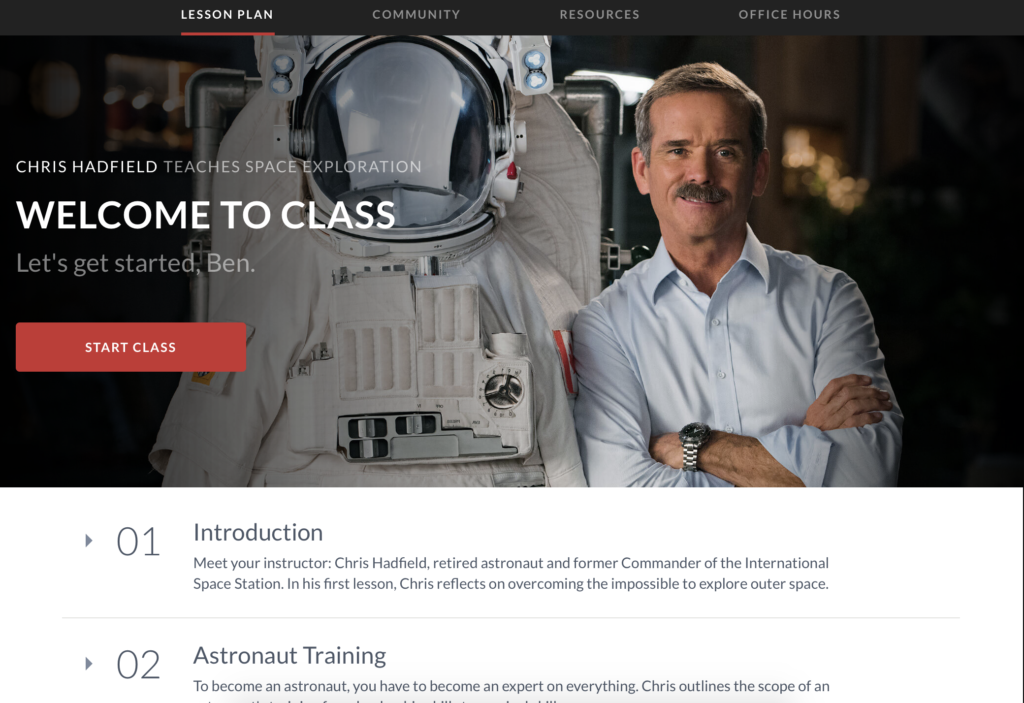
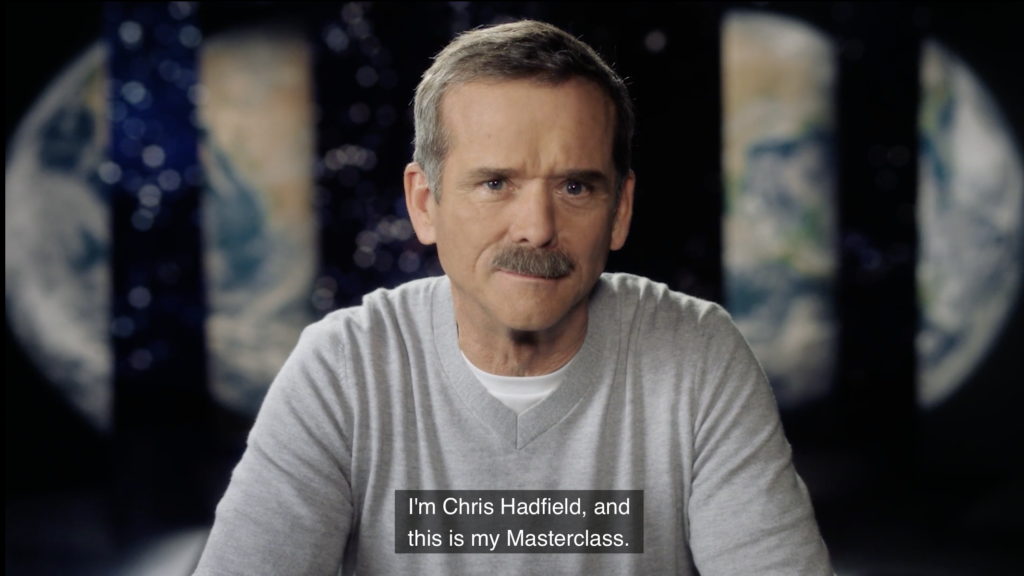
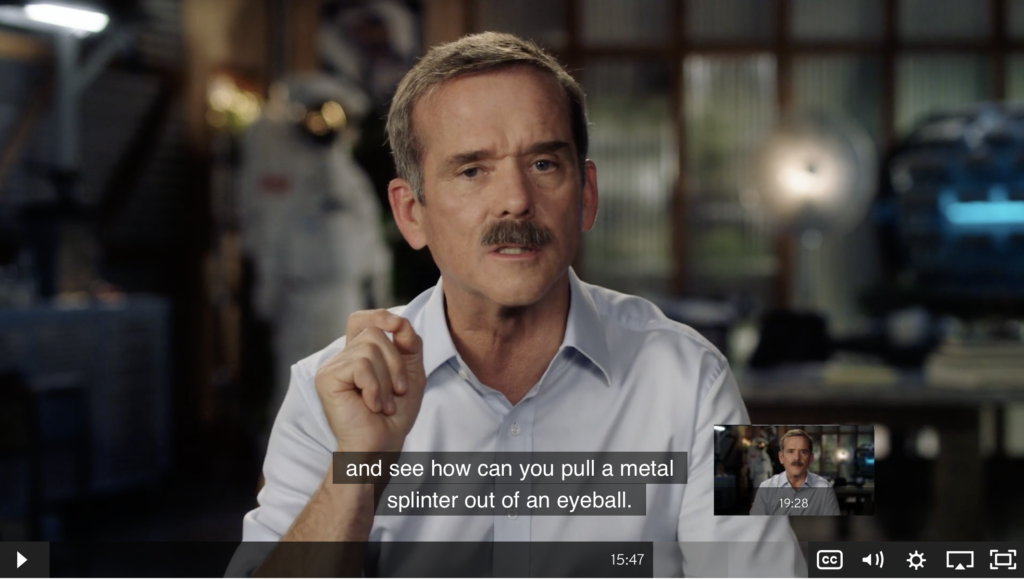
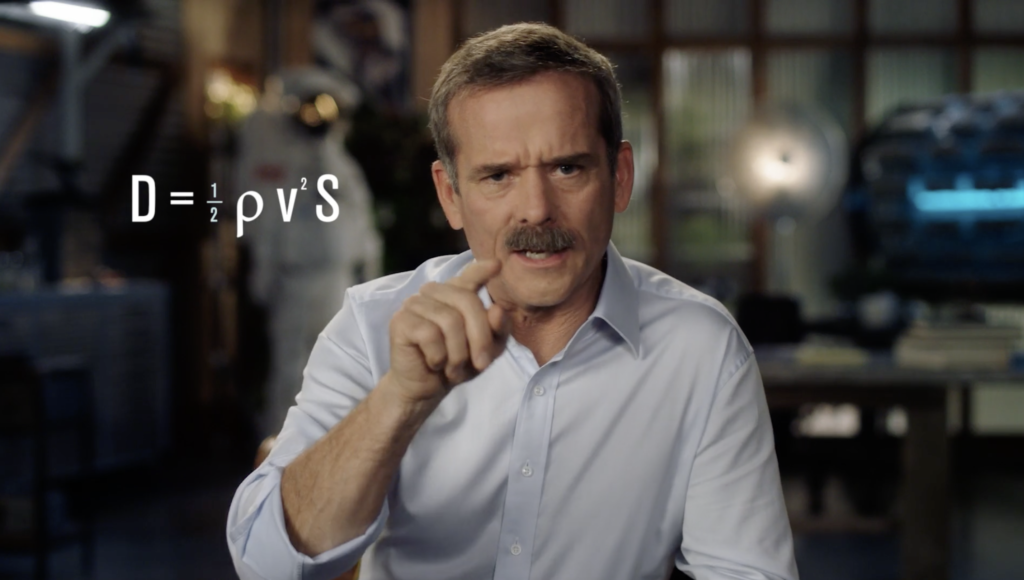
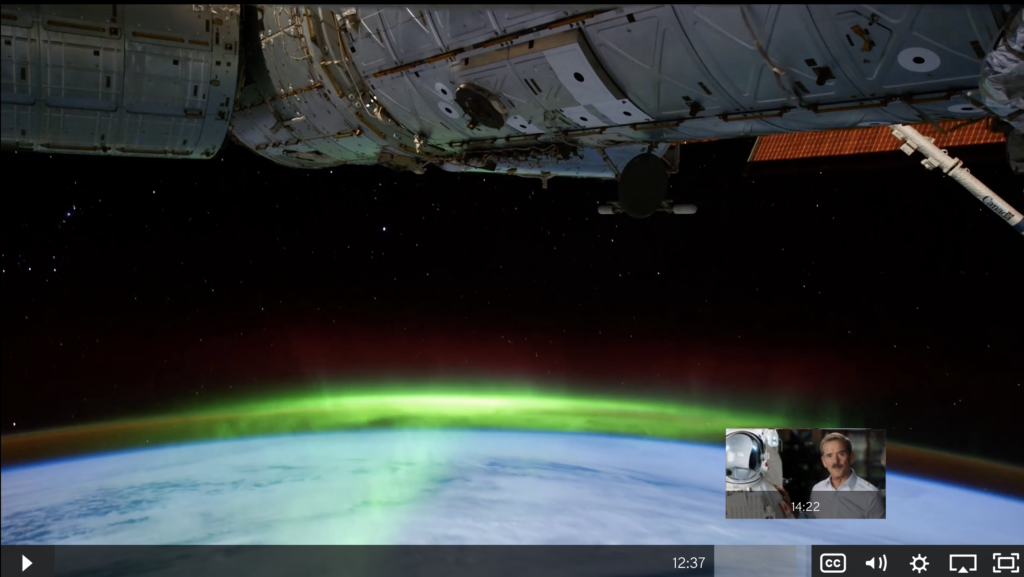
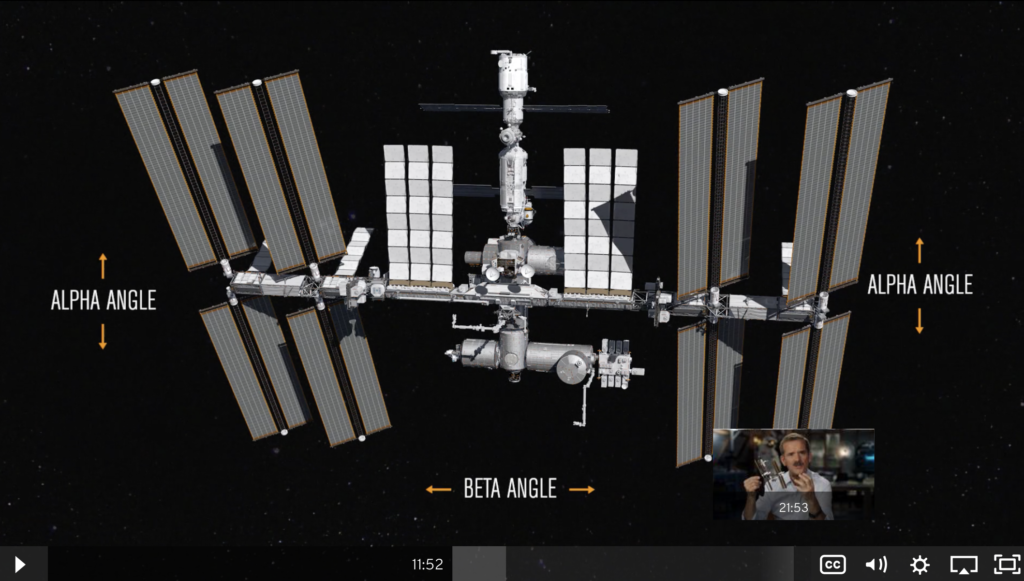
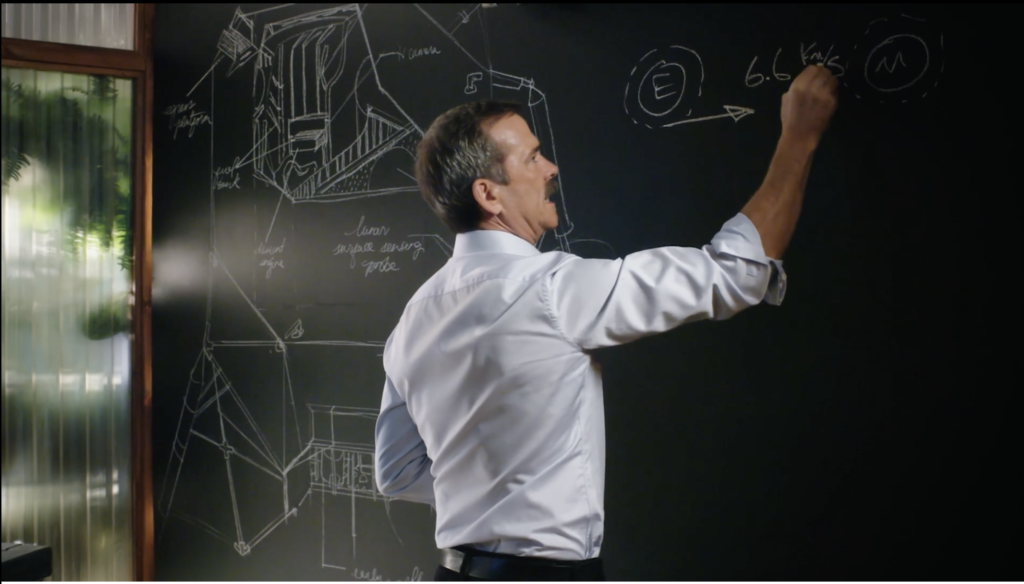
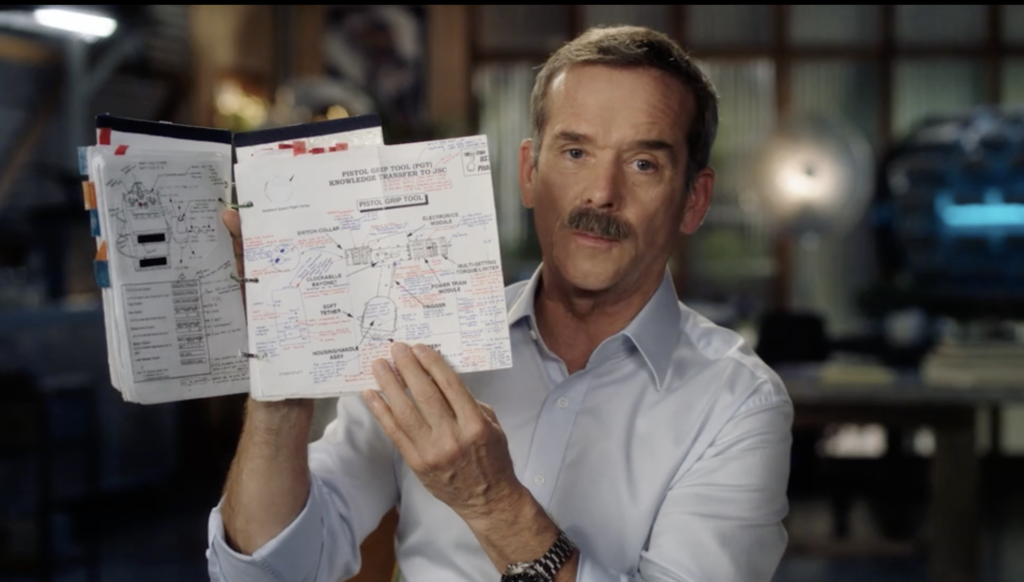
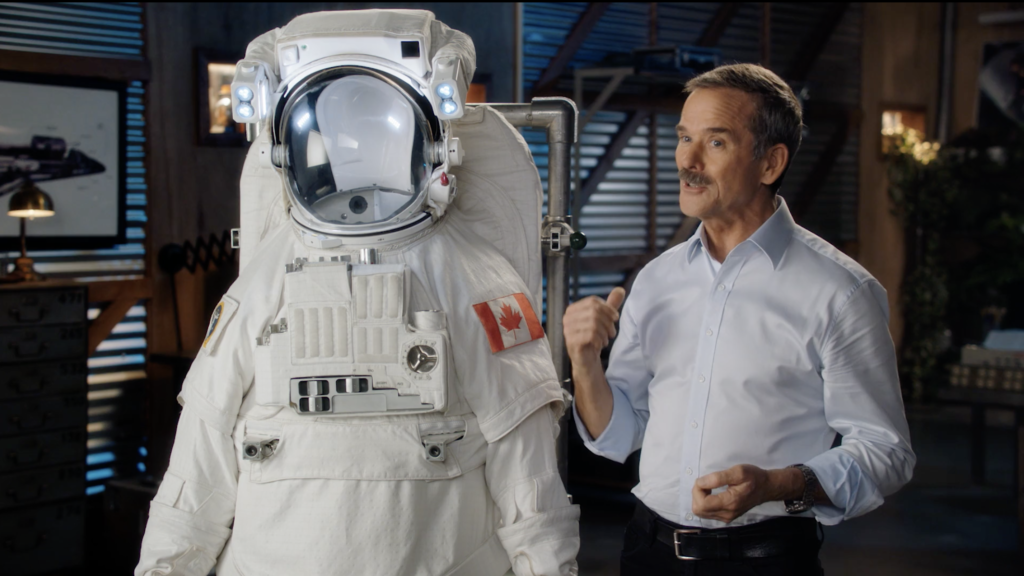
Ben,
I’m so glad to see your review of this “space exploration” course. I just finished it a few days ago myself and was happy to read that your thoughts on the course were much the same as mine.
I found Col. Hadfield to be very engaging. Hadfield has a way of taking a bite-size chunk out of a vast, complicated subject such as orbital mechanics and appealingly presenting it in a way that makes the student feel smarter and inspired to learn more. He’s a phenomenal teacher.
Thanks for all you share with us on this website. I found your blog when I was looking for a review of “Man’s Search for Meaning.” I was trying to make sense of a major medical event I was going through last March (I had a stroke or two) and I found the book (as well as your review) helped with that.
Everything ended up just fine (and I fortunately suffer no on-going issues at all), and one of the really good things that came out of it is that you helped me to re-discover the joy of learning just for the sake of learning. So thank you very much for that.
Hi Matt!
So happy to hear you enjoyed the course. I’m still holding off on the Mars portion because I don’t want it to end yet. Hadfield certainly is a very compelling teacher.
I’m so sorry to hear about your stroke, but that’s a relief that there are no on-going issues. How are you doing now? Are you feeling back to normal? Would love to hear your thoughts on Frankl’s book sometime. It’s certainly one I’ve revisited many times and has helped me through some very hard periods. I think if you got value from Man’s Search for Meaning, you would also like the work of Dr. Jordan Peterson – 12 Rules for Life is a phenomenal read and, aside from Frankl’s book, the only non-fiction work that has made me tear up.
Thank you for your kind message, Matt. You’ve made my day! Stay strong and healthy 🙂
Great review! You always provide compelling reasons to join Masterclass.
Thank you, Joe. Happy you liked it!